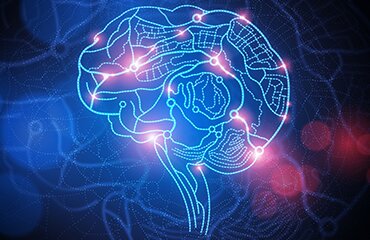Understanding Intellectual Disabilities
Intellectual Disabilities are a type of "Neurodevelopmental Disorder."
Neurodevelopmental Disorders typically manifest in early development, affecting
cognitive,
social,
academic, and later
occupational functioning.
Intellectual Disabilities are classified in two main diagnostic categories:
- Intellectual Disability (Intellectual Developmental Disorder).
- Global Developmental Delay.
Intellectual Disability
Intellectual Disability (or "Intellectual Developmental Disorder") is characterized by deficits in general mental processes, including problem solving, reasoning, planning, judgment, abstract thinking, academic learning, and acquiring new information.
For example, the individual might have difficulty planning future tasks, judging appropriate social behavior, or learning a new skill. Deficits in these mental processes result in impairments in personal independence and social responsibility, such as interpersonal communication (e.g., empathy), social engagement, academic success, occupational functioning, or other activities of daily living (ADL's; e.g., cooking meals, dressing, managing money).
Intellectual Disability is composed of
three diagnostic criteria (DSM-5, American Psychiatric Association):
- Deficits in intellectual functions (e.g., reasoning, problem solving, planning, abstract thinking, judgment, academic learning, learning from experience), verified through clinical assessment and formal intelligence testing.
- Deficits in adaptive functioning. These result in impairments in developmental and sociocultural standards and limit functioning in activities of daily life, such as social participation and independent living.
- The onset of A and B occur during the developmental period (childhood or adolescence).
Intellectual Disability is further specified as either mild, moderate, severe, or profound based on the level of adaptive functioning.
Intellectual Disability is often associated with a range of other behaviors, including:
- Difficulty modulating emotions, aggression (due to lack of communication skills).
- Social inappropriateness.
- Gullibility.
- Altered motivation in school or work.
Therapists are Standing By to Treat Your Depression, Anxiety or Other Mental Health Needs
Explore Your Options Today
Ad
Intellectual Disability often co-occurs with other disorders, including:
The prevalence of Intellectual Disability is about 1%.
Global Developmental Delay
Global Developmental Delay refers to individuals younger than 5 who do not meet expected developmental milestones in several areas of intellectual functioning, but are unable to undergo formal standardized assessments (e.g., they are too young, are blind or deaf).
Causes of Intellectual Disabilities
The causes of Intellectual Disabilities vary, but generally include: genetics (sometimes a genetic syndrome, such as Down Syndrome), acquired illness (e.g., meningitis or encephalitis), or head trauma during the developmental period. Early interventions are available that may improve intellectual and adaptive functioning.
Information Summarized From:
American Psychiatric Association (2013). Diagnostic and Statistical Manual of Mental Disorders, Fifth Edition. Arlington, VA, American Psychiatric Association, 2013.
* This article replaced a previous version in 2013 by Tammy Reynolds, B.A., C.E. Zupanick, PSY.D., & Mark Dombeck, Ph.D, in order to reflect updated material in the DSM-5.
